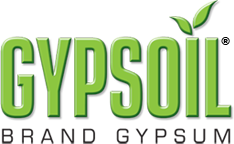News Releases
Media inquiries
Using gypsum to improve soil quality is a popular topic for farm and agricultural inflencer audiences. Please contact our communications consultant Karen Bernick at 1-866-GYPSOIL (497-7645) if you have questions, need story ideas, photos or want to set up interviews with a GYPSOIL team member. GYPSOIL also participates in many national trade shows and meetings including Ag Media Summit, Commodity Classic, National No Tillage Conference and Farm Progress show to name a few.
to improve soil quality is a popular topic for farm and agricultural inflencer audiences. Please contact our communications consultant Karen Bernick at 1-866-GYPSOIL (497-7645) if you have questions, need story ideas, photos or want to set up interviews with a GYPSOIL team member. GYPSOIL also participates in many national trade shows and meetings including Ag Media Summit, Commodity Classic, National No Tillage Conference and Farm Progress show to name a few.
High resolution photos for current news release available here.
Recorded and Powerpoint presentations from the 2014 Midwest Soil Improvement Symposium can be found on the Symposium page.
Highlights from the 2014 press conference at Ohio Farm Science Review.
A collection of general press releases can be found below:
GYPSOIL brand gyspum now in Kansas
Gypsum has been used for centuries and was promoted by colonial crop growers who observed fields that were greener and more lush when mined gypsum or “land plaster” was applied. However, the cost of mining and shipping gypsum to crop producers caused agricultural use to dwindle over time except for use on high value crops like potatoes, tomatoes and peanuts.
GYPSOIL brand gypsum is synthetic gypsum, a highly pure form of gypsum that is a co-‐ product at certain coal-‐fired utilities and other types of food-‐grade industrial plants. Co-‐ product gypsum from coal-‐fired utilities is called flue gas desulfurization or FGD gypsum. It is produced by modern wet scrubbing systems used to clean sulfur emissions from flue gasses and improve air quality.
Soil builder
Agricultural producers apply GYPSOIL brand gypsum to crop fields to build soil structure and improve soil quality. GYPSOIL softens tight soils, decreases nutrient losses and increases rainwater infiltration to help improve moisture utilization, according to Ron Chamberlain, agronomist and director of gypsum programs for GYPSOIL/BRM. Applying GYPSOIL, which contains soluble calcium, neutralizes the metals and chemical salts that bind to clay particles and cause poor soil structure.
“GYPSOIL creates a softer, more manageable soil profile over time,” says Chamberlain, “This means there is less crusting and sealing at the soil surface, and less ponding and runoff after a rain. USDA research also shows that gypsum is an important tool to reduce runoff and soil erosion and keep nutrients from leaving farm fields and entering nearby waterways.”
“Using gypsum as a soil amendment is the most economical way to cut the non-‐point runoff-‐pollution of phosphorus,” says retired soil scientist Darrell Norton who conducted decades of gypsum research while at the USDA-‐ARS National Soil Erosion Laboratory at Purdue University.
By improving soil quality, GYPSOIL also creates an environment that is conducive to soil organisms, including microbes as well as earthworms. The soil organisms break down organic residues and make nutrients available to plants, explains Chamberlain. “This helps make crops healthier and more vigorous,” he says.
Nutrient source
GYPSOIL is an excellent source of nutrients including sulfur, which is depleted in many agricultural soils today1. GYPSOIL contains approximately 16 percent sulfur (in the sulfate form) or about 320 lbs./ton and 20 percent soluble calcium or about 400 lbs/ton, explains Chamberlain.
GYPSOIL’s Chamberlain says agricultural producers are seeking sustainable resources to meet their crop’s nutrient needs and improve soil and water quality. “Our goal is to assist progressive growers striving to improve soil structure and better manage water infiltration and nutrient availability,” says Chamberlain.
For more information, and to learn of local dealers, visit www.gypsoil.com.
END
About GYPSOIL
GYPSOIL is a division and tradename of Beneficial Reuse Management LLC. Its mission is to make a positive impact in our customers’ soil while conserving natural resources and protecting the environment.
1 The Fertliity of North American Soils, 2010, Bulletin Summary, International Plant Nutrition Institute, March 2011.

Applying GYPSOILTM brand gypsum helps soften tight clay soils by neutralizing the metals and chemical salts that bind to clay particles and cause poor soil structure. Photo supplied by GYPSOIL/BRM.
GYPSOIL is a trade name of the GYPSOIL Division of Beneficial Reuse Management LLC
212 W. Superior Street • Chicago, IL 60654 • 1-866-GYPSOIL (497-7645)
• www.gypsoil.com • follow us on Twitter @gypsoil • Like us on Facebook.com/pages/gypsoil.

